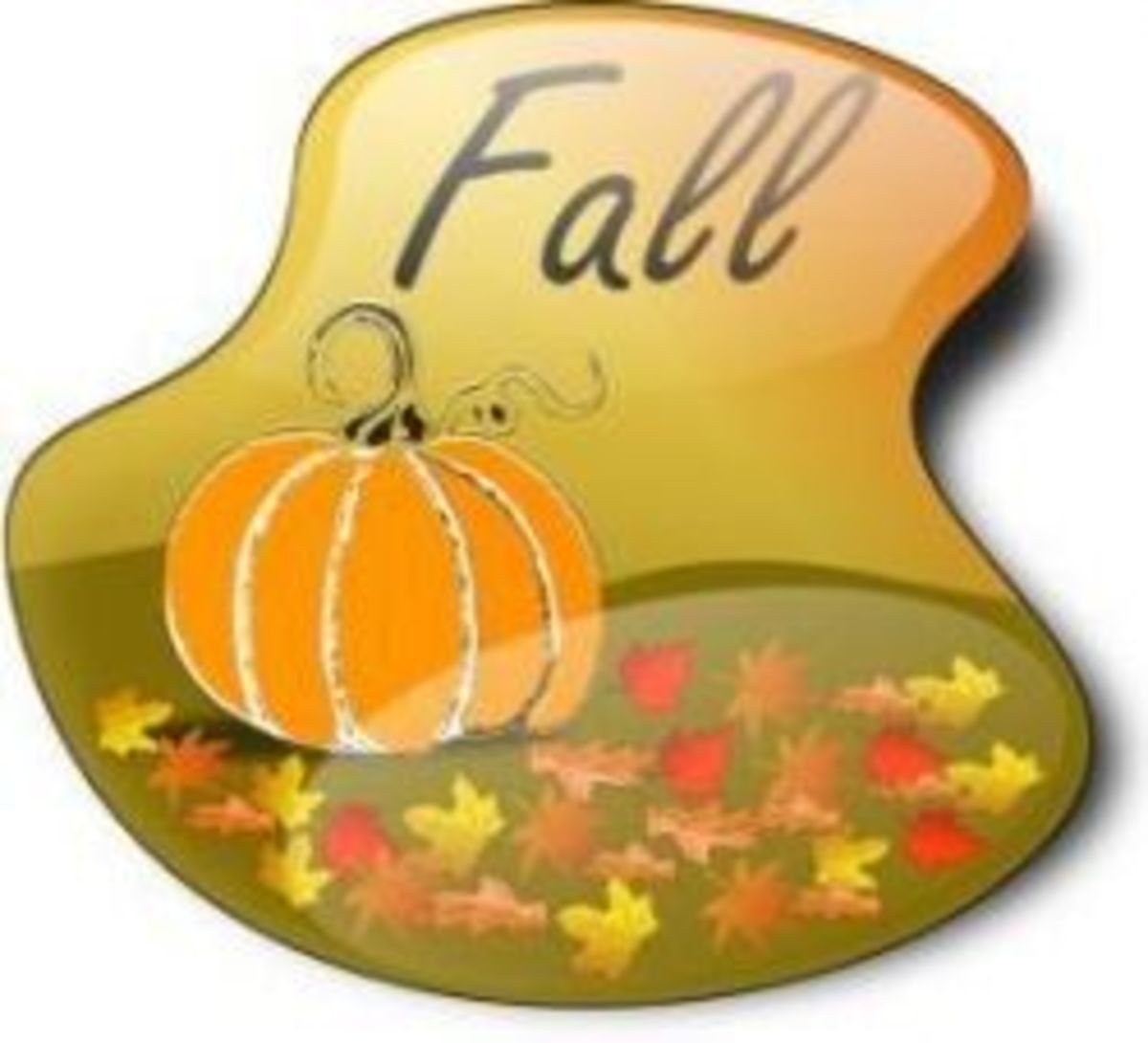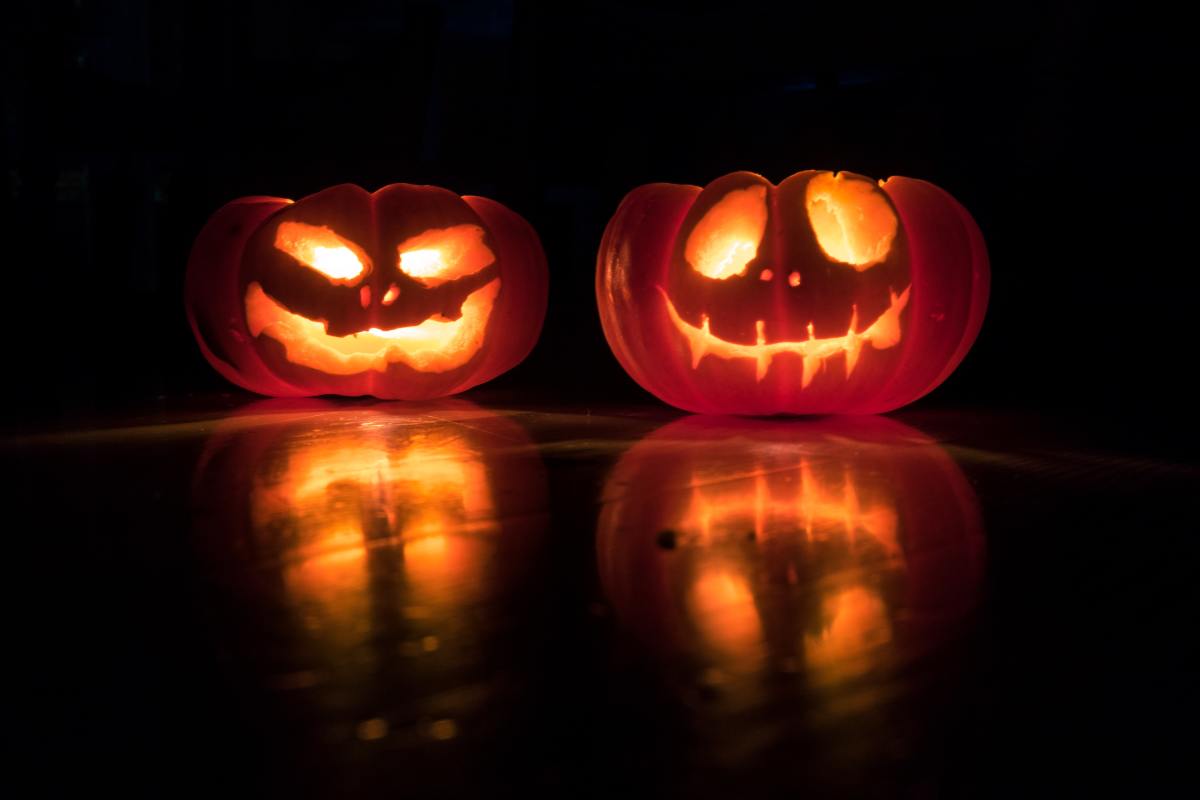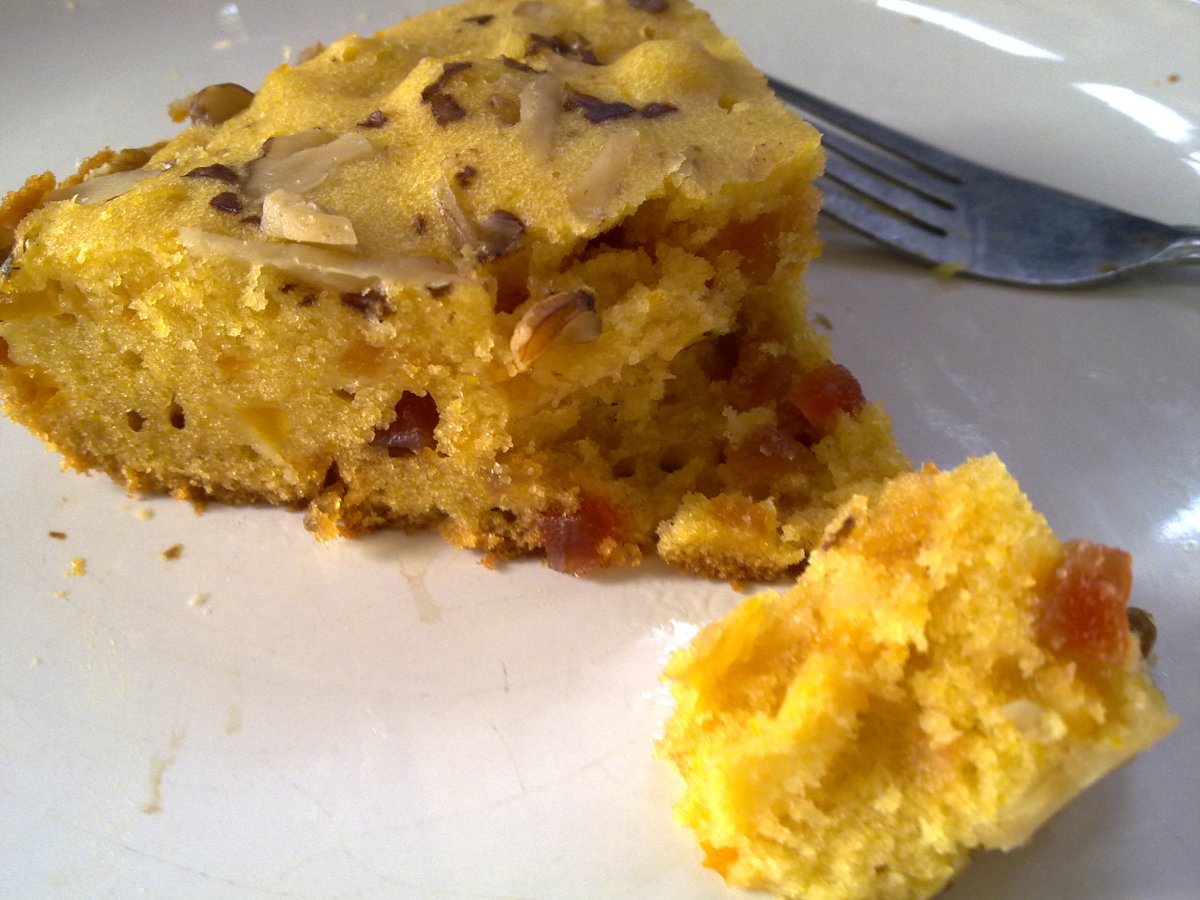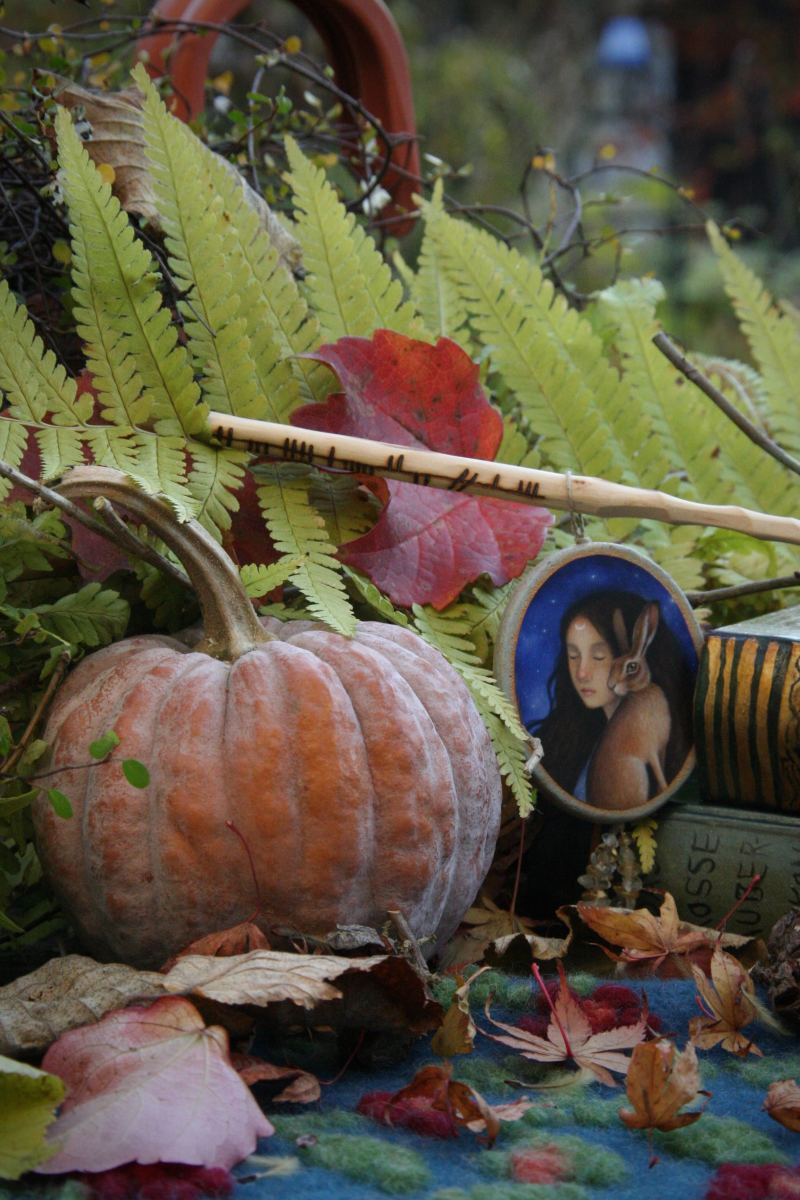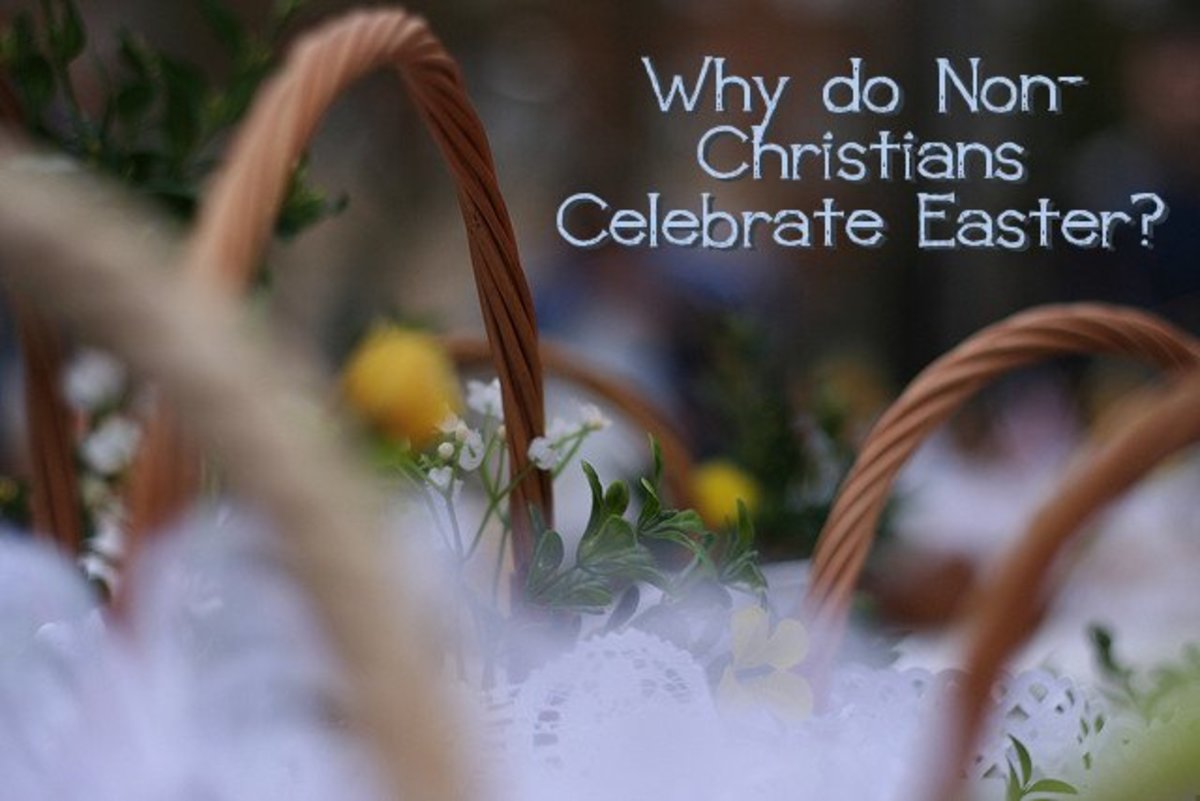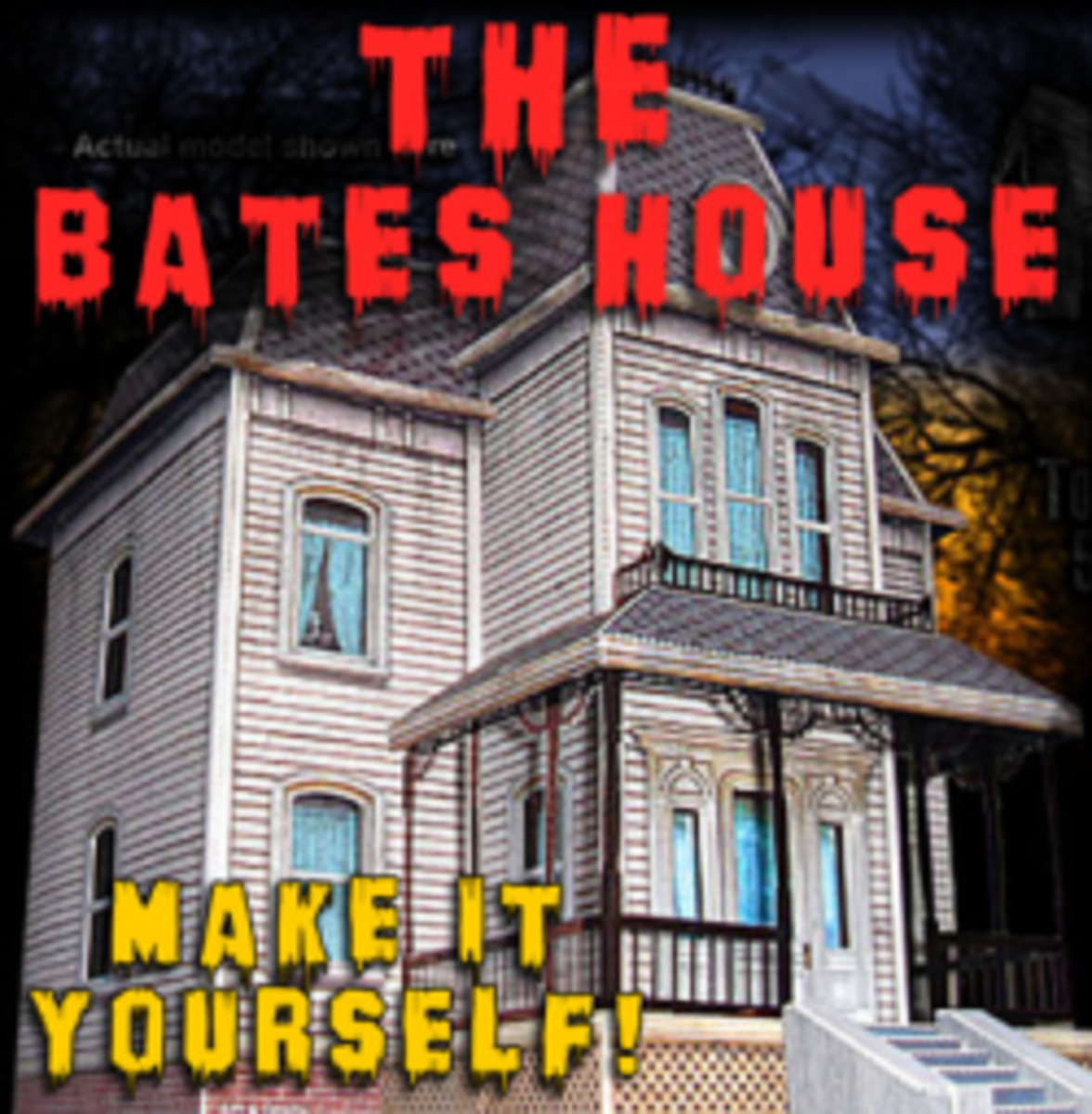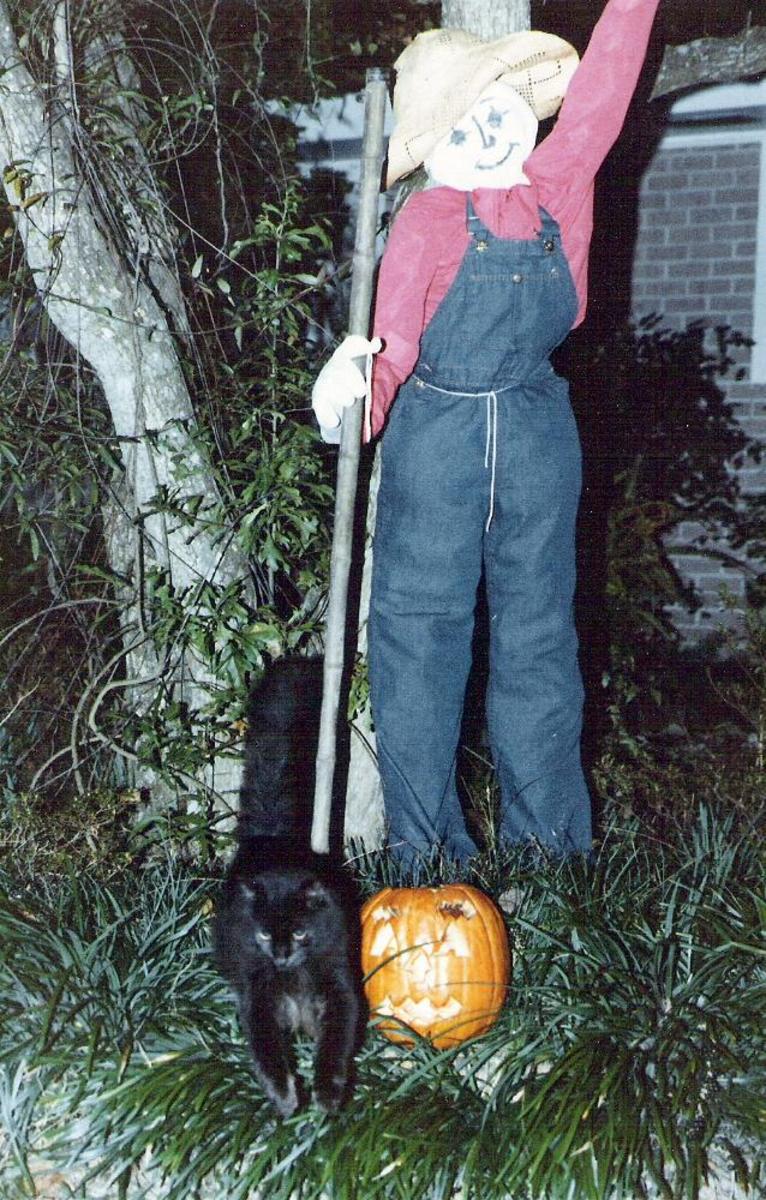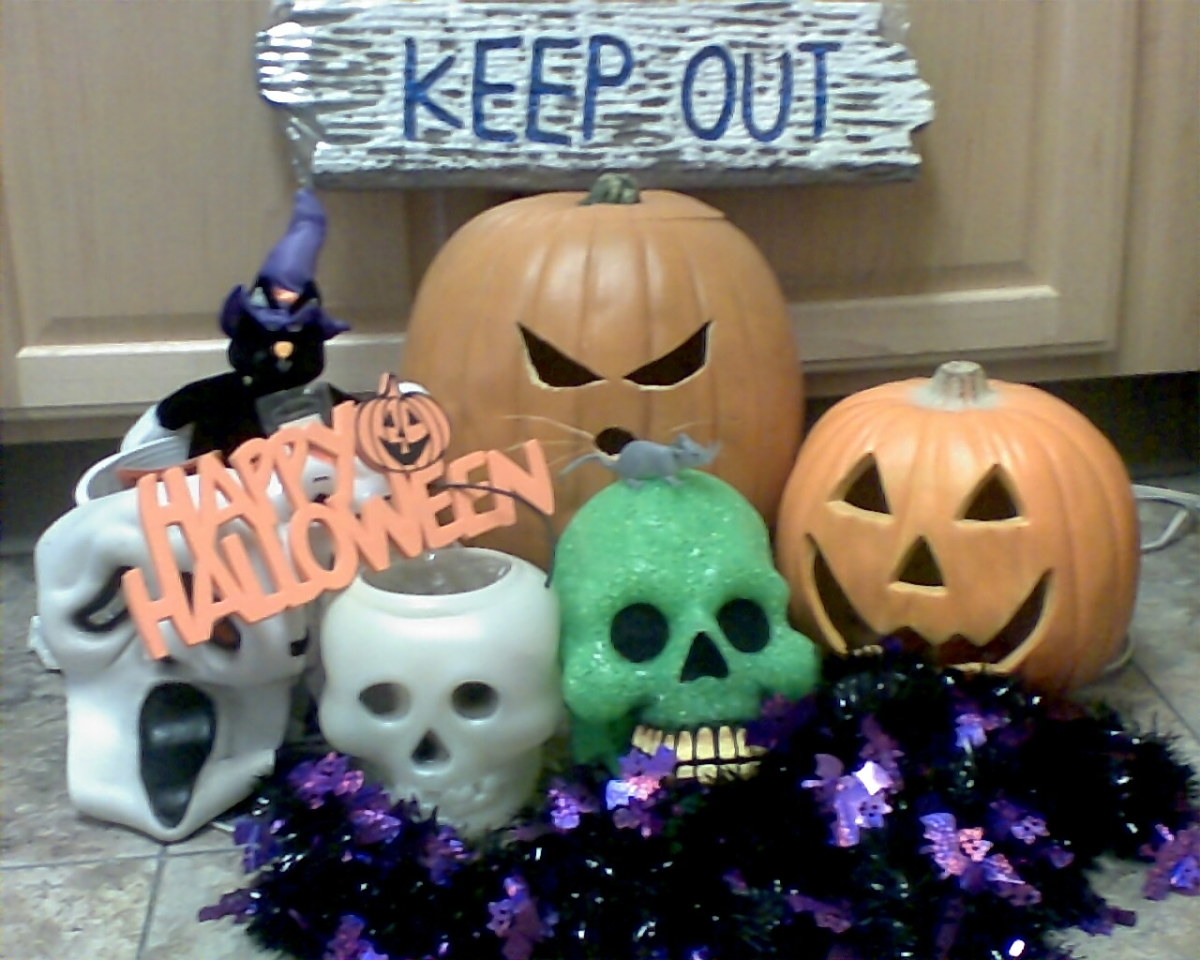Halloween: A Pagan Rite
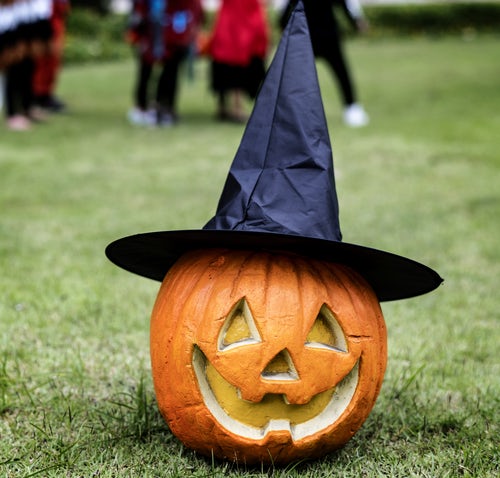
Halloween is one of the most popular holidays, second only to Christmas. Millions of people celebrate Halloween without knowing its origins. Some people view Halloween as a time for fun, wearing costumes, trick-or-treating, and having parties. Others view it as a time of superstitions, ghosts, goblins and evil spirits that should be avoided at all costs. The debate continues especially for Christians who think it is good fun for children, while the conservative Christians hold views not to participate in pagan festivities.
Celebrating Halloween is a preference that is not always viewed as an evil holiday. Halloween is often celebrated with no reference to pagan rituals or the occult. Whether it is viewed as pagan rituals or not, many Christians indulge in the activites.
Halloween is celebrated on October 31st, the last day of the Celtic calendar. Originally a pagan holiday, it is to honor the dead. Halloween was referred to as All Hallows Eve and dates back to over 2000 years ago. All Hallows Eve is the evening before All Saints Day, which was created by the Catholics to convert pagans, and is celebrated on November 1st. The Catholic church honors saints on this designated day.
It can be traced back to the Druids, a Celtic culture in Britain and Northern Europe. The roots lay in the feast of Samhain, which was annually on October 31st to honor the dead.
The Celts believed the souls of the dead roamed the streets and villages at night. All spirits were thought not to be friendly, and gifts and treats were left out to pacify the evil and ensure the following years crops would bring in plentiful. This custom evolved into trick-or-treating.
Wikipedia
Wikipedia
Halloween (or Hallowe'en) is an annual holiday observed on October 31. It has roots in the Celtic festival of Samhain and the Christian holiday All Saints' Day, but is today largely a secular celebration.
Common Halloween activities include trick-or-treating, wearing costumes and attending costume parties, carving jack-o'-lanterns, ghost tours, bonfires, apple bobbing, visiting haunted attractions, committing pranks, telling ghost stories or other frightening tales, and watching horror films.
CATHOLIC: ORIGIN
Being Christians, Catholic Christians, should we celebrate Halloween? Is this "ghosts and goblins, witches and spooks" holiday one we should avoid or is there some value in it for us Christians?
Halloween actually has dual origins. The first being a pre-Christian Celtic feast which is associated with the Celtic New Year. The Christian aspect of the holiday is the second. Pope Gregory IV, in 835, changed the celebration for martyrs (and later all saints) from May 13th to November 1st. All Saints Day is a holy day of obligation where we honor all saints, not just those canonized. Saints and holy people are called "hallowed" in England, thus All Saints Day is known as "All Hallow's Day." The evening before "All Hallow's Eve" or "holy evening." Later this was shortened to "Halloween." All Souls Day is celebrated on November 2nd. The church's reason for these feasts is to remember those who have died, whether canonized or not. We celebrate the "communion of saints," reminding us that the church is truly one and not limited to time or space.
The Celts believed the souls of the dead roamed the streets and villages at night. Since not all spirits were thought to be friendly, gifts and treats were left out to pacify the evil and ensure next years crops would be plentiful. This custom evolved into trick-or-treating.
Time and Date.com on Halloween
Halloween is usually celebrated amongst family, friends and, sometimes, co-workers. However, some areas hold large community events. Parties and other events may be planned on October 31 or in the weekends before and after this date. Adults may celebrate by watching horror films, holding costume parties or creating haunted houses or graveyards.
Many children dress up in fancy costumes and visit other homes in the neighborhood. At each house, they demand sweets, snacks or a small gift. If they do not get this, they threaten to do some harm to the inhabitants of the house. This is known as playing 'trick-or-treat' and is supposed to happen in a friendly spirit, with no nasty or mean tricks being carried out. However, if your children take part, it is important to accompany them and to check their 'treats' to make sure they are safe to eat or play with.
Some families carve lanterns with 'scary' faces out of pumpkins or other vegetables or decorate their homes and gardens in Halloween style. These were traditionally intended to ward off evil spirits. If you are at home on Halloween, it is a good idea to have a bowl of small presents or sweets to offer to anyone who knocks on your door. This will help you to please the little spirits in your neighborhood!
WHAT DOES HALLOWEEN TEACH CHILDREN?
1. It teaches children about extortion - trick or treat. They will get something in return for their threats. Children learn to be selfish for they get what they wanted without giving anything for it.
2. When they are dressed up as witches, or evil spirits, they learn not to fear evil, but rather enjoy the role. They learn the wrong concepts in life.
3. Apple bobbing - Was a fertility rite, which allows the participants to see the future and gain a vision of their future mates. Children learn to be superstitious and that superstition is alright, and not to trust in God.
4. Even Christian children want to be princesses in a witch's party for princesses are supposed to be good people. They cannot differentiate between good and evil. Children love to dress in nice clothes and be admired.
5. They glorify the wrong concepts of what is good or good dressed up as evil. They cannot perceive the Wolf in sheep's clothing. Children do not learn to be perceptive.
6. When the root is evil, it can not bear good fruits, but young children do not have the ability to choose right from wrong. Children do not have the ability to choose the right thing.
7. In Africa during the 70's and 80's there were lots of bonfires because the arsonists did not receive what they wanted. Children may not learn how to take defeat by not getting what they want..
8. Children learn to be rebellious if they cannot get what they want.
9. Young children of 3 or 4 years dressed in black satin on TV seem so pleased with dressing up as witches. How can parents teach children that witches and ghosts are evil and cannot be trusted if they allow their children to be witches or ghosts?.
10. Children may not fear approaching strangers for gifts and believe it is their right to accept gifts.
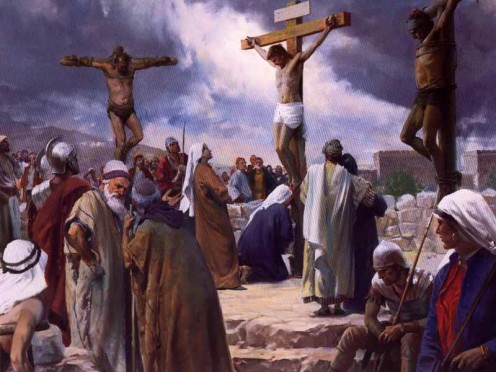
WHAT DOES THE BIBLE SAY ABOUT HONOURING THE DEAD
The only death we should honour is remembering the death of Jesus Christ. We should remember that sinless Jesus sacrificed Himself for our sins.
Luke 22:19
- And he took bread, and gave thanks, and brake it, and gave unto them, saying, This is my body which is given for you: this do in remembrance of me.
1 Corinthians 11:23-25
- For I have received of the Lord that which also I delivered unto you, That the Lord Jesus the same night in which he was betrayed took bread:
- And when he had given thanks, he brake it, and said, Take, eat: this is my body, which is broken for you: this do in rememberance of me.
- After the same manner also he took the cup, when he had supped, saying, This cup is the new testament in my blood: this do ye, as oft as ye drink it, in remembrance of me.
As for honouring the dead of our families, Ecclesiastes 3:20 tells us, "All go unto one place; all are of the dust, and all turn to dust again."
Jesus will come again for the second last time to earth to judge the whole world. Those who did good during their lifetime will resurrect to life while the evil will get their just punishment.
John 5:28, 29
- Marvel not at this, for the hour is coming in the which all that are in the graves shall hear his voice,
- And shall come forth; they that have done good,unto the resurrection of life; and they that have done evil, unto the resurrection of damnation.
1 Corinthians 11:26
- For as often as ye eat this bread, and drink this cup, ye do shew the Lord's death till he come.
Ecclesiastes 3:20
- All go unto one place; all are of the dust, and all turn to dust again. come to be from the dust, and they are all returning to the dust.
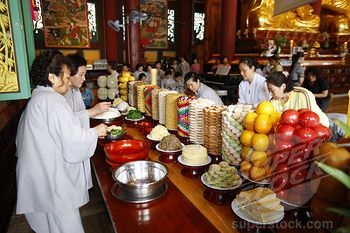
PAGANS HONOUR THE DEAD
1. Xingu tribes celebrate the KuarupMedia
Here the Indians celebrate the Kuarup. A High Xingu ceremony honoring the dead. The celebration is intertribal and represents recreation. Brazil.
2. Hispanic culture - El Dia Los Muertos. Celebrated by many South American Countries.
3. Italy - Children anticipate that they will awaken on November 2 to sweets and toys left by dead relatives.
4. Mexico - Hacienda Tres Rios - unite to honour the dead
5. Spanish speaking countries - Days of the Dead
6. China - Chinese burn candles to honour the dead in Chongging
7. Hong Kong - Ching Ming honouring the dead
8. Japan - Japan honours the Buddhist tradition in calling any dead person hotoke (buddha or enlightened one)
9. Africa - Honoring African Ancestors, Mozambique, Madagascar
10. India - To honour the dead, lanterns are hung stuck into the banks of the Ganges during Akash Deep Puja.
HALLOWEEN IS DETRIMENTAL TO CHILDREN
There is nothing more detrimental, dangerous and destructive than the celebration of Halloween. The festival is the second most popular activity to Christmas. Candies are sold a quarter of all that is in America during the Halloween season.
From young, children learn that it is alright to demand goods without having to pay for them. It is fun to dress up as witches and ghosts and believe they cannot harm you. The forces of evil become associated with fun and there is no clear cut distinction between the good and evil. They learn to revel in the dark and it is considered fun. Darkness and evil may become second nature to them.
Every year Halloween deceptively and stealthily takes hold of the young receptive minds that Halloween is free and you receive candies without cost. Just demand and you receive, otherwise you will be harmed. Trick or treat! As the years passed by, the young children become older and more entrenched in the belief that Halloween is just fun and is harmless.
What does the Bible say? Proverbs 22:6 states: Train up a child in the way he should go: and when he is old, he will not depart from it.
Ezekiel 44:23
And they shall teach my people the difference between the holy and profane, and cause them to discern between the unclean and the clean.
Related Topics
WHY DO CHRISTIANS CELEBRATE PAGAN CHRISTMAS?http://hubpages.com/hub/whychristianscelebratepaganchristmas
CHRISTIANIZED PAGAN VALENTINE'S DAY http://hubpages.com/hub/christianizedpaganvalentine
CHOOSE HOLY COMMUNION OR EASTER http://hubpages.com/hub/chooseholycommunionoreaster
Halloween: A Pagan Rite
Do you agree that Halloween does not teach children the right values of life?
Links
- What does Halloween really stand for? Why do we cele...
I'm writing this hub in response to the request for a hub,
© 2010 einron

